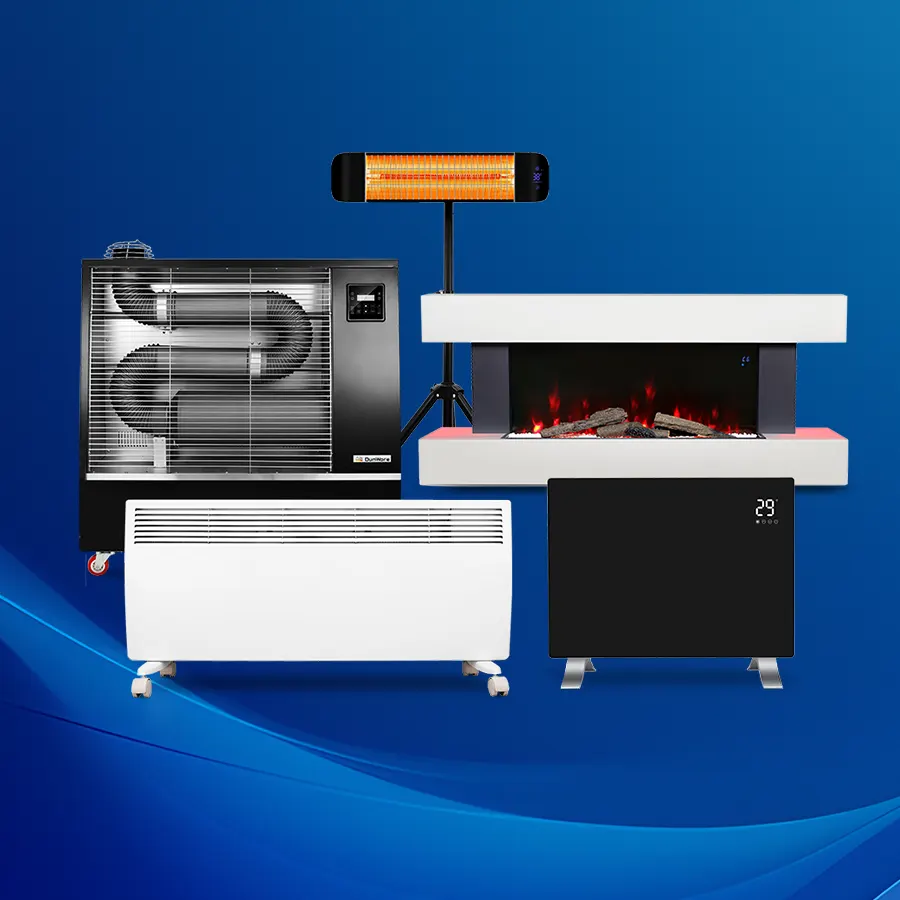Finding an effective and efficient cooling solution is paramount in the quest for comfort during sweltering temperatures. Among the myriad of options available, air cooler fans have emerged as a popular choice for many households and workplaces.
These devices offer a blend of affordability, エネルギー効率, and environmental friendliness, making them an attractive alternative to traditional air conditioning systems.
This comprehensive guide delves into the intricacies of air cooler fans, exploring their operation, health implications, differences from standard fans and air conditioners, and much more.
Understanding Air Cooler Fans

What is an Air Cooler Fan?
An air cooler fan, often referred to as an evaporative cooler or swamp cooler, is a device designed to cool air through the natural process of water evaporation. Unlike conventional fans that merely circulate existing air or air conditioners that use refrigerants to lower temperatures, air cooler fans harness the cooling power of water evaporation to reduce ambient heat.
This method is particularly effective in areas with hot, 乾燥した気候, where the addition of moisture to the air can significantly enhance comfort levels.
How Does an Air Cooler Fan Work?
The operation of an air cooler fan is rooted in the principle of evaporative cooling, a natural process that has been utilized for centuries. Here’s a detailed breakdown of how these devices function:
- Water Reservoir and Pump System
At the heart of an air cooler fan lies a water reservoir that holds the necessary water for the cooling process. A pump circulates this water, ensuring that the cooling pads remain consistently saturated.
- 冷却パッド
These are typically made from materials like cellulose or aspen wood shavings, designed to absorb and retain water efficiently. The pads provide a large surface area for air to pass through, facilitating effective evaporation.
- Air Intake and Fan Mechanism
A powerful fan draws warm air from the surrounding environment into the cooler. As this hot air passes through the wet cooling pads, the water begins to evaporate.
- Evaporation and Heat Absorption
The evaporation process requires heat energy, which is extracted from the incoming warm air. This absorption of heat results in a significant drop in air temperature.
- Distribution of Cooled Air
The now-cooled air is propelled out of the device and into the room, effectively lowering the ambient temperature and increasing comfort.
This continuous cycle ensures a steady stream of cool air, making air cooler fans an efficient solution for heat relief.
Health Implications of Air Cooler Fans
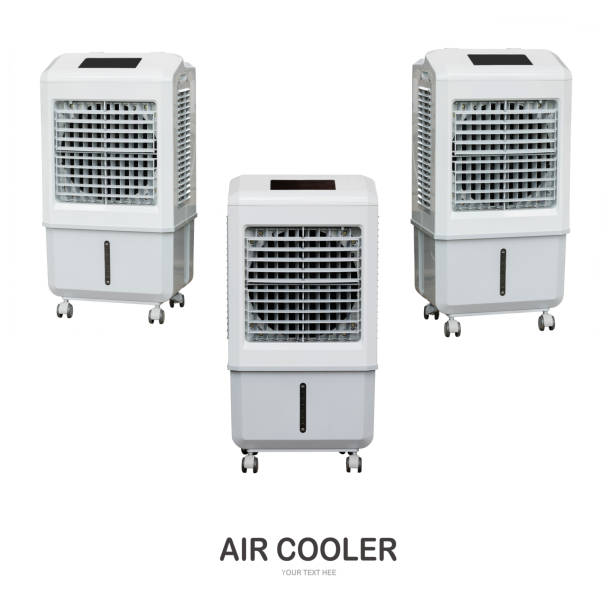
Are Air Cooler Fans Good for Your Health?
Air cooler fans offer several health benefits, particularly in dry climates where adding moisture to the air can be advantageous. Here are some of the health-related advantages:
- Humidification of Air
By adding moisture to the environment, air cooler fans can help prevent issues associated with dry air, such as dry skin, throat irritation, and respiratory discomfort.
- 空気の質の改善
Many air coolers are equipped with filters that trap dust and other airborne particles, contributing to cleaner indoor air.
- 自然冷却
Unlike air conditioners that use chemical refrigerants, air coolers provide a more natural form of cooling, which can be less likely to cause respiratory issues for some individuals.
しかし, it’s important to note that in areas with high humidity, the additional moisture introduced by air coolers can promote the growth of mold and mildew, potentially leading to respiratory problems. Regular maintenance and ensuring proper ventilation can mitigate these risks.
Air Cooler Fans vs. Traditional Fans and Air Conditioners
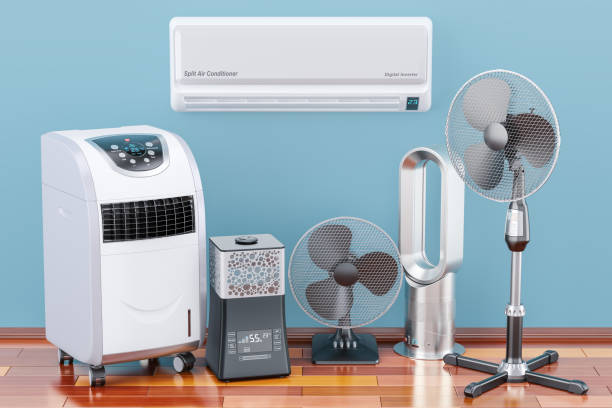
What is the Difference Between an Air Fan and an Air Cooler?
Understanding the distinctions between standard fans and air cooler fans is crucial for making an informed cooling choice:
Cooling Mechanism:
- Air Fans
operates by circulating the existing air in a room, creating a wind-chill effect that can make occupants feel cooler without actually lowering the room’s temperature.
- Air Cooler Fans
Actively lower the air temperature through evaporative cooling, providing a more substantial cooling effect.
Humidity Impact:
- Air Fans
Do not alter the humidity levels of a room.
- Air Cooler Fans
Increase humidity by adding moisture to the air, which can be beneficial in dry climates but less desirable in already humid conditions.
エネルギー消費量
Both devices are generally energy-efficient, but air cooler fans may consume slightly more electricity due to the additional components like water pumps.
Air Coolers vs. Air Conditioners
When comparing air cooler fans to air conditioners, several key differences emerge:
- 冷却能力
Air conditioners are capable of significantly lowering room temperatures, regardless of external humidity levels. 対照的に, air coolers are most effective in dry climates and may not perform well in humid environments.
- Installation and Portability
Air coolers are typically portable and require minimal installation, whereas air conditioners often require professional installation and may be fixed in place.
- 環境への影響
Air coolers use water as a cooling agent, making them more environmentally friendly compared to air conditioners that rely on chemical refrigerants.
- 料金
一般的に, air coolers are more affordable both in terms of initial purchase price and ongoing operational costs.
Types of Air Cooler Fans
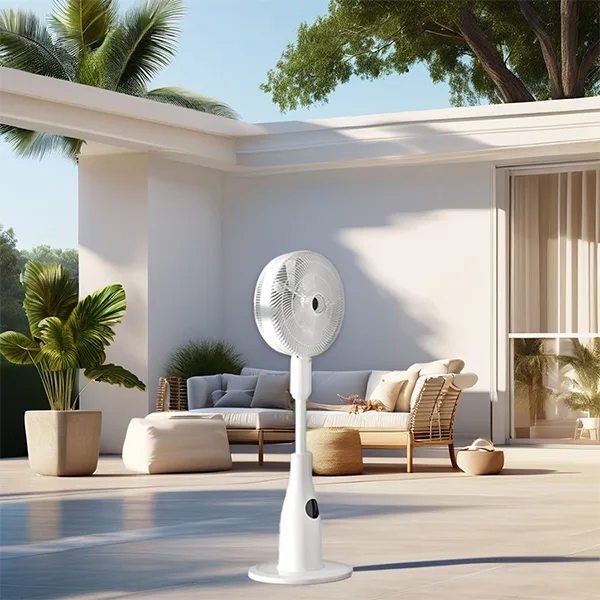
Air cooler fans are available in a range of types, each tailored to meet specific cooling needs and environmental conditions:
Portable Air Fan Coolers
- Ideal for Small Spaces
Compact and lightweight, these units are perfect for bedrooms, オフィス, or personal workspaces.
- Mobility
Equipped with caster wheels and handles, they can be easily moved from room to room.
- User-Friendly Features
Most models include a remote control, adjustable fan speeds, and built-in timers for convenience.
Evaporative Industrial Air Coolers
- Heavy-Duty Cooling
Specifically designed for large, open spaces such as warehouses, manufacturing facilities, and garages.
- High Airflow Capacity
These coolers can move large volumes of air, making them suitable for heat-intensive environments.
- 耐久性のある構造
Often made from metal or high-grade plastic, they are built to withstand harsh working conditions.
Window and Wall-Mounted Air Coolers
- スペース節約デザイン
Mounted units are great for rooms with limited floor space.
- Permanent Installation
These provide a more fixed solution and can offer better airflow control.
- Lower Noise Levels
Generally quieter due to fixed positioning and insulated housing.
Advantages of Using Air Cooler Fans
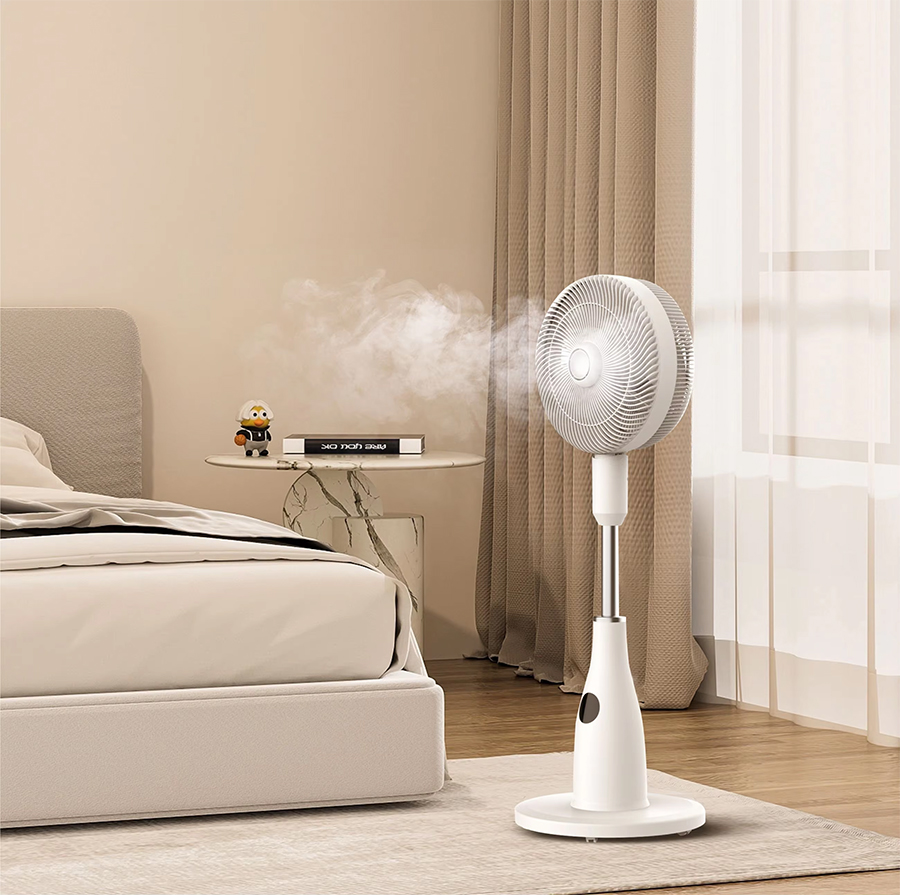
Air cooler fans provide a range of benefits that make them a practical alternative to conventional cooling systems:
エネルギー効率
- Air coolers use up to 80% less electricity than traditional air conditioners.
- Lower energy usage translates into significantly reduced monthly utility bills.
Eco-Friendliness
- These devices operate without harmful refrigerants like CFCs or HCFCs.
- Their reliance on natural evaporation processes makes them environmentally sustainable.
Cost-Effectiveness
- Lower Initial Investment
Compared to air conditioning units, air coolers are more affordable to purchase.
- Minimal Operating Costs
Less power consumption and inexpensive maintenance contribute to long-term savings.
Ease of Use
- Simple Operation
Most units offer plug-and-play convenience with basic settings.
- Minimal Installation
No need for ductwork or complicated setup.
Air Quality Improvement
- The water-based cooling process helps to filter dust and allergens from the air.
- Some models include air purification filters or ionizers for enhanced indoor air quality.
Choosing the Right Air Cooler Fan in ラウンド
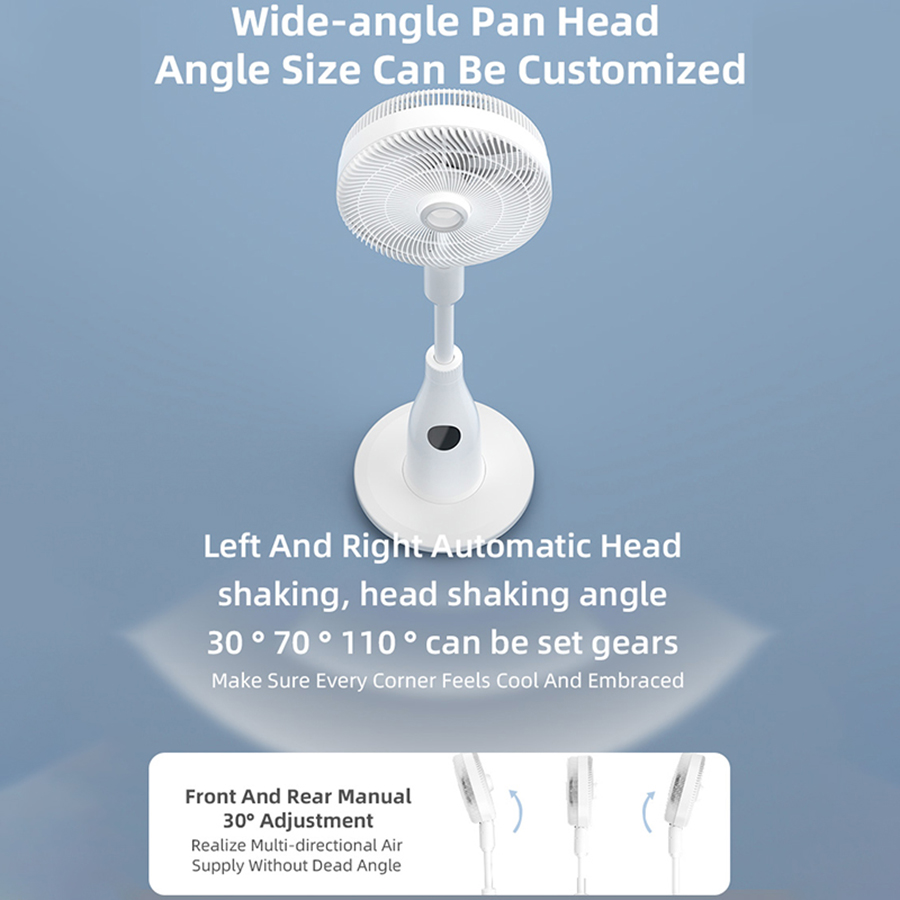
When selecting an air cooler fan, consider the following factors:
気候への適合性
- Evaporative cooling works best in hot, dry environments.
- 湿気の多い場所では, the cooling effect may be minimal, and a portable air fan cooler or conventional fan might be a better fit unless there’s proper ventilation.
Size and Portability
- For personal use or in small rooms, a portable air fan cooler is ideal.
- For larger rooms or industrial spaces, consider a larger capacity air cooler or an evaporative industrial air cooler with higher airflow rates.
水タンク容量
- A larger water tank reduces the frequency of refilling.
- Models that use air cooler fan water circulation systems with automatic refills are more convenient.
Airflow and Fan Speed Options
- Look for models that provide adjustable fan speeds, swing options, and multiple cooling modes.
- More advanced models include remote controls and digital displays for ease of use.
エネルギー効率
- Choose an energy-efficient air cooler to reduce electricity costs while maintaining good cooling performance.
- Check for energy-saving certifications or power consumption ratings.
騒音レベル
Some fans can be noisy. If you need quiet operation (例えば, for bedrooms or offices), check the decibel levels in the product specs.
私たちについて
と 14+ 長年の開発, 当社の製品範囲は以下のように拡大されました。 電気ヒーター, ファンヒーター, 電気暖炉, 赤外線ディーゼルヒーター, air cooler and more. We cater to residential, コマーシャル, そして 工業用 クライアント, プロフェッショナルを提供する, 環境に優しい, インテリジェントなワンストップ暖房ソリューション.
As a trusted 電気ヒーター manufacturer, Yika holds certifications for ISO 45001, ISO 9001, and ISO 14001. さらに, Yika は Sedex によって Supplier Plus メンバーとして認められました, 充実した供給力を披露.
そしてYika, 私たちのR&D team is committed to delivering innovative and reliable heating solutions to meet the diverse needs of our customers.
結論
Air cooler fans offer an affordable, エネルギー効率の高い, and eco-friendly cooling solution that is especially effective in hot, dry environments. Whether you’re investing in a portable air fan cooler for your bedroom or an evaporative industrial air cooler for your warehouse, understanding how these devices work and their benefits is essential for making the right choice.
Not only do they help reduce energy bills and environmental impact, but they can also improve air quality and humidity for better comfort and health. Just ensure proper usage and regular maintenance to get the most out of your air cooler fan.
よくある質問
Are Air Cooler Fans Good for Your Health?
- Humidification: Helps with dry skin, sinus congestion, and irritated eyes by adding moisture to dry air.
- Cleaner Air: Most coolers have dust filters that remove particles from the air.
- Chemical-Free Cooling: No harmful gases or refrigerants are used.
- Improved Sleep: A portable air fan cooler set to low speed can provide a gentle breeze, ideal for sleep.
しかし, be cautious in high-humidity areas. Excess moisture can lead to mold or mildew growth. Proper maintenance is key to avoiding any health hazards.
How Does the Fan Work in the Air Cooler?
- Draws in Warm Air: From the surrounding environment into the unit.
- Pushes Air Through Wet Pads: Water-saturated cooling pads cause the air to cool down as it passes through.
- Distributes Cool Air: The fan then blows the freshly cooled, moistened air into the room.
Fans typically have adjustable speeds and may feature oscillation to circulate air more evenly. Some advanced models even include ionizers for improved air freshness.

